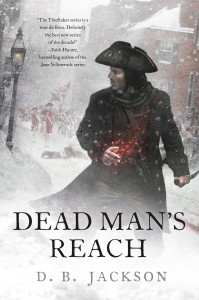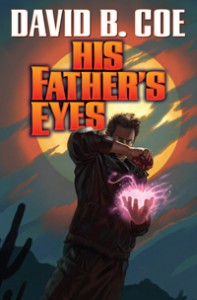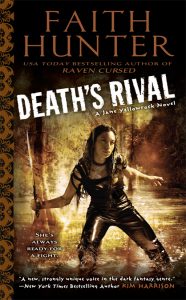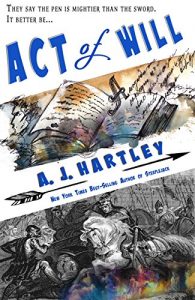[Let me begin by saying this: I know the President is ill. I hope he recovers; I understand it’s possible that he’ll take a turn for the worse. I hope the First Lady and the growing number of public officials who have tested positive for coronavirus recover as well. None of what follows is meant to be insensitive to the President’s condition. But neither will I give him more consideration than he has given to the millions of Americans who have fallen ill, or to the more than two hundred thousand who have died from Covid-19.]
We are, at this point, through the looking glass.
2020 has become so ridiculous, so laden with crisis, so fraught with fear and anger and confusion, that it risks turning into a caricature of itself. The Presidential campaign alone has morphed into a farce — a farce with far-reaching implications for economic stability; for racial, social, and sexual justice; for the health and safety of all Americans; and for the very survival of the planet. But a farce, nevertheless.
In my recent posts and my minimal appearances on other platforms, I have hinted at the emotional struggles in my life. My family has been touched by Covid, which has been scary, but, so far, not nearly as bad as it might have been. I have struggled to write and grappled with industry-wide issues. Again, I’ve been luckier than some, and less fortunate than others. And I have been obsessed to the point of panic and despair with the campaign and with the constant bloviation of our infant-in-chief.
It is this last that has had me in retreat from social media and news over the past couple of weeks. Yet, this is also what I am musing on this morning. Because in stepping back from the febrile headlines that assault us day after day, I find myself lamenting a much deeper issue.
Donald Trump is a menace. We know this. He is a White supremacist. He represents an existential threat to the norms and customs of our republic. He is boorish and crude, unintelligent and incurious, corrupt and dishonest and utterly unconcerned for the well-being of the public he is supposed to serve. But perhaps most damaging is the simple fact that he is a spectacle. Each day we are subjected to some new outrage. This campaign, for better or worse, is about him, about his failures and his failings. The good news is that a hard focus on Trump may well be enough to end this shit-storm of a Presidency.
Unfortunately, such a campaign does a disservice to our country. We face serious problems. We should be searching for solutions to climate change, engaging in a meaningful discussion of systemic racism, cementing gains in the fight for LGBTQ rights, working toward pay equity and an end to systemic sexism, building a fairer, stronger economy, and tackling a host of other issues that will shape not only our lives, but those of our children and generations to follow.
Do I want the world to see Trump’s tax returns and the dark secrets contained within them? Sure. Do I see some Karmic justice in his positive test for Covid-19? Yes, I do, even as I hope that he and his wife recover. Am I disgusted by his nod and wink toward the White nationalist Proud Boys? Damn right.
Mostly, though, I’m pissed that these things are “issues.”
Politics is always messy, and Presidential campaigns always entertain their share of nonsense controversies and titillating distractions. The problem is, with this President those things are all we have. Because that’s what he wants. Sure, he complains of being mistreated by the press and demonized by his political opponents, but really all he cares about is attention. Positive attention, negative attention — he doesn’t differentiate. As long as he is the center of the conversation, he’s happy. He doesn’t want to discuss real issues. That would demand work, preparation, concentration. And then the conversation wouldn’t be about him. It would be about us, about our lives, our families, our futures — things that don’t interest him.
Maybe it was inevitable that we would elect a man like this. In an age of reality television and ubiquitous social media, it’s not surprising that we should have a reality-star President who is utterly self-involved. More, Americans often look for qualities in a new President that were absent in his (and someday, please, her) predecessor. Policy-wonk Bill Clinton was followed by George W. Bush, who was not a detail guy, and who was, in turn, followed by the wonkish, erudite Barack Obama. Trump is the anti-Obama: a white racist, devoid of charm, integrity, compassion, and erudition.
That might be too easy an explanation. Honestly, I am too exhausted to care anymore. This President has worn me down. I would love to be passionate about the prospect of a Joe Biden Administration. I wish I had been more excited about all the candidates who sought the Democratic nomination, but Trump ruined even that for so many of us. Yes, we had our preferences, and Bernie Sanders’ supporters were nearly as fervent this time around as they were in 2016. In the end, though, we cared only about finding someone who could beat Trump. Overcoming this blight on our nation was more important than the aspirations and enthusiasm that ought to animate an election season. Sad.
So, here we are, having been confronted with this clown-show, day after day, month after month, for four long years. And, if we’re smart and lucky, no longer than that.









 My first book, Children of Amarid, was a fairly standard epic fantasy, though it had the seeds of more within the nuances of its plot. It was my second novel, though, The Outlanders, that convinced me I could succeed as a writer. The reason was, that second book was different. It introduced a technological, crime-ridden world unlike anything I’d ever tried writing. It created an unusual dynamic among three of my lead characters — two of the characters, who were allies, spoke different languages, and they had to rely on the third for translation. But neither of them trusted that third character.
My first book, Children of Amarid, was a fairly standard epic fantasy, though it had the seeds of more within the nuances of its plot. It was my second novel, though, The Outlanders, that convinced me I could succeed as a writer. The reason was, that second book was different. It introduced a technological, crime-ridden world unlike anything I’d ever tried writing. It created an unusual dynamic among three of my lead characters — two of the characters, who were allies, spoke different languages, and they had to rely on the third for translation. But neither of them trusted that third character. Still, I can say this: It’s easy to grow attached to one particular franchise, one particularly world and set of characters and style of story. Certainly I have written a good deal in the Thieftaker world, and will soon be coming out with new work about Ethan Kaille, Sephira Pryce, et al. The fact is, though, each time I have moved on to a new project, I have tried (admittedly with varying degrees of success) to challenge myself, to force myself to grow.
Still, I can say this: It’s easy to grow attached to one particular franchise, one particularly world and set of characters and style of story. Certainly I have written a good deal in the Thieftaker world, and will soon be coming out with new work about Ethan Kaille, Sephira Pryce, et al. The fact is, though, each time I have moved on to a new project, I have tried (admittedly with varying degrees of success) to challenge myself, to force myself to grow. After the LonTobyn books, I moved to Winds of the Forelands and Blood of the Southlands, which demanded far more sophisticated world building and character work. After those, I turned to Thieftaker, adding historical and mystery elements to my storytelling and limiting my point of view to a single character. I also started working on the Justis Fearsson books, which explored mental health issues and were my first forays into writing in a contemporary setting. Then I took on the Islevale books, time travel/epic fantasies that presented the most difficult plotting issues I’ve ever faced.
After the LonTobyn books, I moved to Winds of the Forelands and Blood of the Southlands, which demanded far more sophisticated world building and character work. After those, I turned to Thieftaker, adding historical and mystery elements to my storytelling and limiting my point of view to a single character. I also started working on the Justis Fearsson books, which explored mental health issues and were my first forays into writing in a contemporary setting. Then I took on the Islevale books, time travel/epic fantasies that presented the most difficult plotting issues I’ve ever faced. J.D. Blackrose
J.D. Blackrose *****
*****
 I believe my action scenes are pretty effective, and, actually, I would say the same about my sex scenes. But that wasn’t always the case. In the first draft of my very first novel, Children of Amarid, I wrote a sex scene that my editor tore apart. And with good reason. While the rest of the narrative worked pretty well, the sex scene felt completely staged and out of character. And the reason was quite simple: For that one encounter, I forgot about my characters’ points of view and tried to write a sex scene that felt, well, sexy. That didn’t work, because my characters were young and in love, but also inexperienced and still a little awkward with each other. None of that came through in the writing.
I believe my action scenes are pretty effective, and, actually, I would say the same about my sex scenes. But that wasn’t always the case. In the first draft of my very first novel, Children of Amarid, I wrote a sex scene that my editor tore apart. And with good reason. While the rest of the narrative worked pretty well, the sex scene felt completely staged and out of character. And the reason was quite simple: For that one encounter, I forgot about my characters’ points of view and tried to write a sex scene that felt, well, sexy. That didn’t work, because my characters were young and in love, but also inexperienced and still a little awkward with each other. None of that came through in the writing. In the same way, action scenes – fight scenes, battle scenes, violent scenes; whatever you want to call them – also hinge on the qualities, histories, experiences, and emotions of our point of view characters. A seasoned fighter, someone who makes their living in a violent world or who was brought up to be a warrior, is going to experience violence quite differently from, well, someone like me, who has little knowledge of fighting technique and scant history with violence and bloodshed. The practiced fighter’s point of view might sound almost clinical – this person will know how to control emotion, how to draw upon skills and observations learned over years of training. The novice’s point of view should come off as far more desperate, fearful, overwhelmed by the frenzy of violence in which they find themselves. Again, point of view is all. One is not necessarily more exciting to read than the other – think of the battle scenes in Faith Hunter’s thrilling, New York Times Bestselling Jane Yellowrock books and in A.J. Hartley’s wonderful Will Hawthorne novels, which are not only entertaining but also a master class in writing voice. Jane is a warrior; Will is SO not.. The scenes in both make for compelling reading, but they couldn’t be more different.
In the same way, action scenes – fight scenes, battle scenes, violent scenes; whatever you want to call them – also hinge on the qualities, histories, experiences, and emotions of our point of view characters. A seasoned fighter, someone who makes their living in a violent world or who was brought up to be a warrior, is going to experience violence quite differently from, well, someone like me, who has little knowledge of fighting technique and scant history with violence and bloodshed. The practiced fighter’s point of view might sound almost clinical – this person will know how to control emotion, how to draw upon skills and observations learned over years of training. The novice’s point of view should come off as far more desperate, fearful, overwhelmed by the frenzy of violence in which they find themselves. Again, point of view is all. One is not necessarily more exciting to read than the other – think of the battle scenes in Faith Hunter’s thrilling, New York Times Bestselling Jane Yellowrock books and in A.J. Hartley’s wonderful Will Hawthorne novels, which are not only entertaining but also a master class in writing voice. Jane is a warrior; Will is SO not.. The scenes in both make for compelling reading, but they couldn’t be more different.